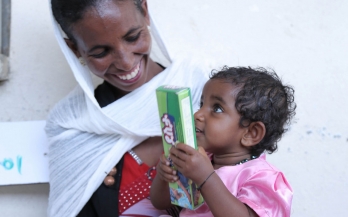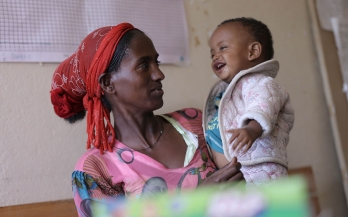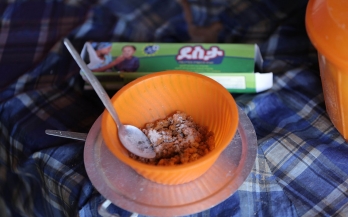In Ethiopia, as part of the Community-Based Complementary Food (CBCF) project, women’s groups in four regions are focusing on addressing nutrition deficiency among infants and young children. In addition, this project serves has an opportunity to promote women empowerment and provide them with more livelihood opportunities.
Despite significant improvements in child nutrition in Ethiopia in recent years, 23% of the country’s children under 5 years are underweight, and the prevalence of child malnutrition remains above the regional average. Inadequate infant and young child feeding practices and the poor quality of complementary food for infants and children between 6 and 23 months of age are known to be among the most important determinants of childhood undernutrition.
As women make up a significant share of the agricultural labor force and often carry the responsibility of caring for families, promoting their empowerment will have a clear positive impact on the nutrition of their children and communities.
CBCF was launched in 2012 by UNICEF Ethiopia in partnership with the Food and Agriculture Organization of the United Nations (FAO), Addis Ababa University (AAU) and four regional universities launched CBCF project. GAIN joined in 2014. Groups of women were established to produce and sell complementary foods in their communities.
From February 2016 to May 2017, women sold over 57,000 kg of complementary foods that they produced. The programme reached more than 5,000 children under 5 years old and employed more than 150 women. CBCF addressed three main challenges related to malnutrition and poverty: 1) child undernutrition, 2) women’s empowerment, 3) and women’s livelihood opportunities.
The CBCF project demonstrated that, with adequate support for the provision of fortification premix and operational assistance throughout the production cycle, women’s groups can be established to sustainably produce complementary food and improve the nutritional status of infants and young children.
It also provides important lessons on how to build a sustainable business, through a strong partner network. The results show that this type of business-based approach can work to both improve child nutrition and women’s livelihoods and empowerment.
The CBCF project was made possible by the generous contribution of the Ethiopia Ministry of Health, DFID – Government of the United Kingdom, the Government of the Netherlands and the Bill & Melinda Gates Foundation.
Images
For more photos, please visit our Flickr photostream
Videos




